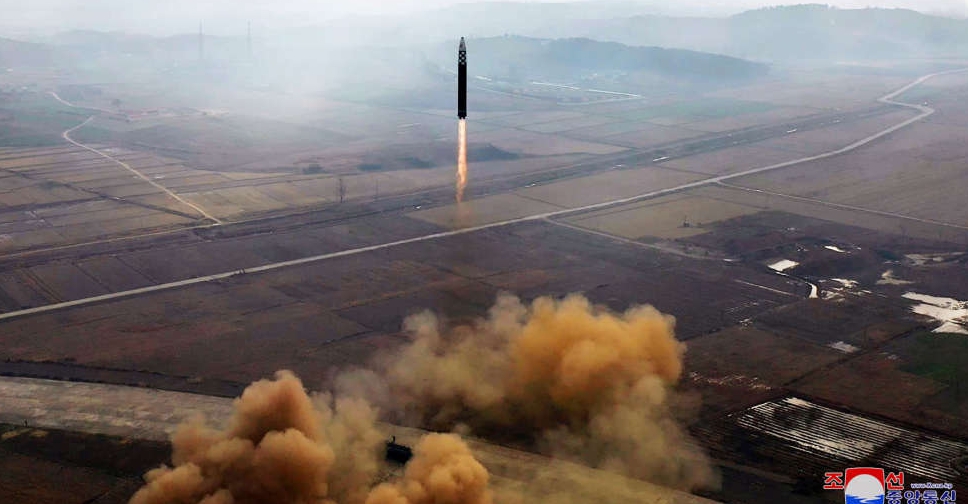
North Korea fired two ballistic missiles towards the sea off the Korean Peninsula's east coast on Sunday, prompting South Korea's presidential office to "strongly condemned" Pyongyang for escalating tensions.
South Korea's Joint Chiefs of Staff (JCS) said the two medium-range missiles flew about 500 km.
Japan's Vice Defence Minister Toshiro Ino said the missiles seemed to have landed outside Japan's exclusive economic zone (EEZ) and there had been no report of damages.
"North Korea's ballistic missiles were launched at steep angles and landed in the East Sea," South Korea's JCS said in a statement.
"South Korean and the United States intelligence authorities are conducting a thorough analysis, factoring recent trends related to North Korea's missile development."
South Korea convened a National Security Council (NSC) meeting over North Korea's missile launch and "strongly condemned" for escalating tensions on the Korean Peninsula, South Korea's presidential office said in a statement.
The presidential office added that the North's continued provocations and development of nuclear weapons and missiles would further endanger the North Korean regime.
The North's missile launch comes just days after the country tested a high-thrust solid-fuel engine that experts said would allow quicker and more mobile launch of ballistic missiles, as it seeks to develop a new strategic weapon and speed up its nuclear and missile programmes.
The test, overseen by leader Kim Jong Un, was conducted on Thursday at North Korea's Sohae Satellite Launching Ground which has been used to test missile technologies, including rocket engines and space launch vehicles, the official KCNA news agency reported on Friday.
North Korea has conducted an unprecedented number of missile tests this year, including an intercontinental ballistic missile (ICBM) capable of reaching the US mainland, despite international bans and sanctions.
In November, North Korea test-fired an ICMB that Japanese officials said had sufficient range to reach the mainland of the United States and that landed just 200 kms off Japan
Japan on Friday unveiled its biggest military build-up since World War Two with a $320 billion plan that will buy missiles capable of striking China and ready it for sustained conflict.

 UK inquiry finds 'chilling' cover-up of infected blood scandal
UK inquiry finds 'chilling' cover-up of infected blood scandal
 Iranian President Raisi killed in helicopter accident, state media says
Iranian President Raisi killed in helicopter accident, state media says
 ICC prosecutor seeks arrest warrants for Israeli, Hamas leaders
ICC prosecutor seeks arrest warrants for Israeli, Hamas leaders
 Assange given permission to appeal against US extradition
Assange given permission to appeal against US extradition
 Israel intends to broaden Rafah sweep, Defence Minister tells US
Israel intends to broaden Rafah sweep, Defence Minister tells US




